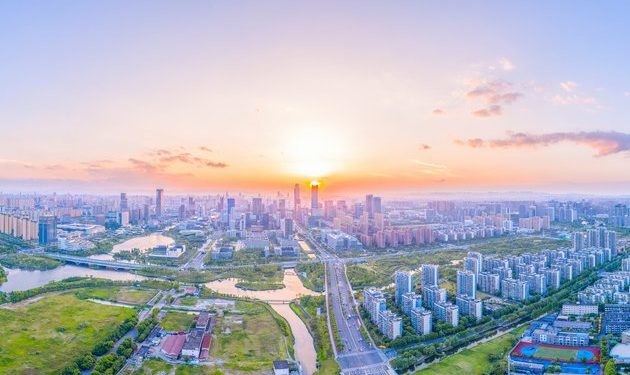The Conversation
16 Mar 2022, 04:40 GMT+10
Many of the world’s poorest people live in regions most susceptible to flooding. In northeast India, some residents have been forced to rebuild their homes at least eight times in the past decade. In Africa, the continent’s largest city, Lagos in Nigeria, may become unliveable due to severe floods, while a recent flood caused by tropical storm Ana affected hundreds of thousands of people across the south of the continent.
The situation is expected to worsen in the next few decades, especially for many of the world’s largest cities in lower and middle income countries of Africa, Asia and Latin America. This century, their population is projected to increase substantially. Lagos, for example, could reach a population of 88 million by 2100 according to one academic estimate.
These cities are already improving their infrastructure. But most of the focus remains on big engineering solutions (like flood walls and embankments) rather than a more holistic plans that would involve every level of society. As we have recently argued in our research, these cities must instead become truly “resilient societies” – before it is too late.
Blue-green infrastructure
There have been some attempts to move beyond a simple focus on engineering. For instance, one approach is to put in place so-called blue-green infrastructure, which uses the planning system to integrate rivers, canals or wetlands (the blue) with trees, lawns, parks or forests (the green). This can involve anything from small-scale “rain gardens” that allow water to drain naturally through soil, through to much larger-scale artificial wetlands or ponds.
“Sponge cities“, an approach first introduced in China in 2013, are a nice example of this in practice. The idea of a sponge city is that rather than using concrete to channel away rainwater, it is best to work with nature to absorb, clean and use the water. So, much like a sponge, the cities are designed to soak up the excess stormwater without becoming over-saturated.
For instance, the port city of Ningbo, where one of us is based, transformed a 3km strip of brownfield into an eco-corridor and public park.
Shanghai has also turned its new “Land of Starry Sky” park (so named because it neighbours an astronomy museum) into a sponge facility, using permeable materials to absorb rainwater. The Chinese government recognised sponge cities can achieve more sustainability goals than solely relying on traditional engineering structures.
In contrast, there is a more worrying scenario in Lagos and other coastal cities which heavily rely on insufficient engineering systems to protect from flooding.
We need resilient cities
In our new research, we studied existing practices and identified a lack of adequate engagement with key stakeholders (such as local industry, small businesses and communities) as the main problem. Engagement with stakeholders such as these is key to improving outcomes of blue-green infrastructure, and such engagement is easier than ever thanks to the widespread use of mobile and digital technologies. Ideally, climate resilient infrastructures should be considered a co-production of all these various groups.
For example, sponge cities have successfully integrated nature-based solutions with traditional engineering. Yet these cities often struggle to get everyone involved in proactively thinking about the risk of floods. We argue that the key to resilient flood management lies in getting the whole society engaged in preventing floods where possible, in adapting to their worst impacts and in ensuring a timely return to the pre-disaster state.
The absence of this social engagement exacerbates flood impacts especially in poorer and more vulnerable parts of the world. Our research stresses that any truly resilient city must have a flood management plan that integrates natural, engineered and social systems.
Authors: Faith Chan – Associate Professor of Environmental Sciences, University of Nottingham | Olalekan Adekola – Senior Lecturer in Geography, York St John University






